It’s here. After months of hype, leaks and reveals, Humane has officially revealed the Ai Pin. The small device magnetically attaches to its wearer’s lapel, collecting data via an on-board camera. It’s powered by a Qualcomm chip and leverages AI. Humane believes that one day it could replace your smartphone. It will be available to order November 16 in the U.S.
“Ai Pin is the embodiment of our vision to integrate AI into the fabric of daily life, enhancing our capabilities without overshadowing our humanity,” the startup’s founders said in a releae. “We are proud to finally unveil what we and the team at Humane have been working on for the past four years. For us, Ai Pin is just the beginning.”
It somewhat resembles Narrative Clip, the ill-fated lifelogging camera. The square device (or squircle, if you will) features a camera and microphone, along with depth and motion sensors, collecting data that is processed on-board by a Snapdragon processor. Voice control is at the heart of the product, as a seemingly logical next step from smartphone assistants like Siri. The pin communicates with the wearer by way of a “personic speaker” or paired Bluetooth headphones.
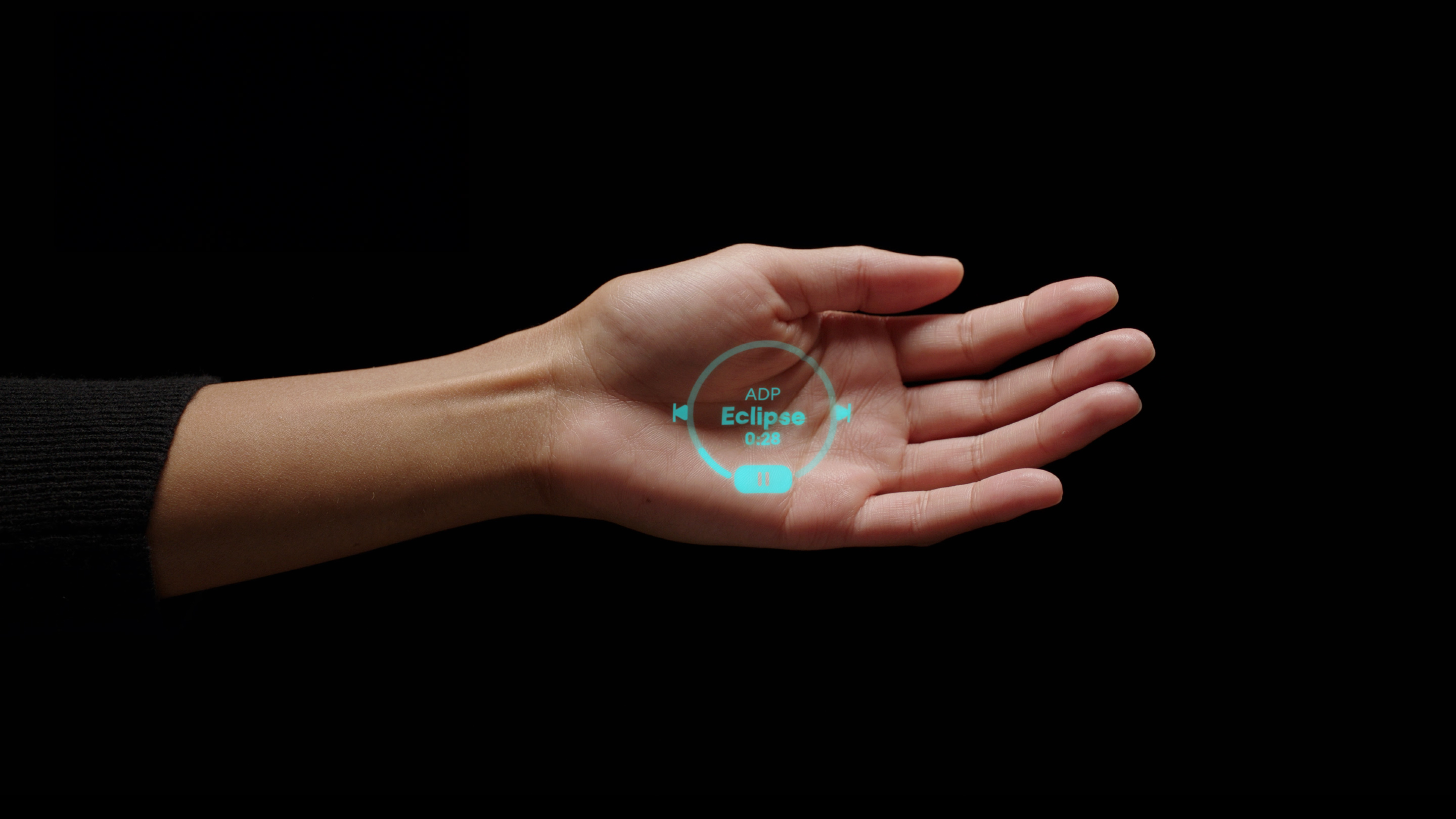
There’s no screen — that’s kind of the whole point, really — but there is a touchpad. The pin also reacts to gestures. Unlike myriad other products that have promised to liberate us from our screen addiction, however, the Ai Pin is designed to be used without a tethered smartphone. That comes by way of a Humane-branded wireless network built atop of T-Mobile.
Far and away the most visually interesting bit here is the Laser Ink Display, which projects text such as an incoming call onto your palm, in place of the touchscreen.

The device ships with a “battery boosters,” so users can hot swap power sources. The Pin “boasts a unique two-piece design, consisting of the main computer and a battery booster. These are connected magnetically and power wirelessly through clothing and apparel, enabling you to wear Ai Pin in a variety of ways. With its perpetual power system, users can hot swap the battery booster on-the-go, ensuring uninterrupted usage and all-day battery life.”
Much like the recently released Ray-Ban Meta glasses, the system features a “Trust Light” to let those around know when the system is recording. Such recording has become a flashpoint for many privacy advocates, though we have yet to see how the public at large reacts to these sorts of devices. The rise of services like Facebook may well have inured many to such potential intrusions.
Humane is quick to point out that the Pin isn’t listening for wake words when not engaged. “The device only activates upon user engagement and does not employ ‘wake words’, ensuring it is not always listening or recording,” it writes. “Ai Pin features a prominent Trust Light which indicates when any sensors are active, which is managed via a dedicated privacy chip. If compromised, Ai Pin will shut down and require professional service from Humane.”

The system runs on Cosmos (CosmOS?), a proprietary operating system infused with AI. “An entirely new AI software framework, the Ai Bus, brings Ai Pin to life and removes the need to download, manage, or launch apps. Instead, it quickly understands what you need, connecting you to the right AI experience or service instantly,” the company writes.
The specific variety of ChatGPT is curiously not mentioned by name in the initial release, though the press material does namecheck OpenAI. “Humane’s unique collaborations with Microsoft and OpenAI give Ai Pin access to some of the world’s most powerful AI models and platforms and set the foundation for new capabilities to be added as the technology evolves,” it notes. “Ai Pin is a standalone device and does not need to be paired with a smartphone or other companion device.”
The device experience can be customized off-device using the Humane.center service. That’s an important bit, given how the voice- and touch-only interface severely limits on-device customization.
“To manage and access your data, including photos, videos, and notes, Ai Pin connects to Humane.center,” the company notes. “This platform serves as a central hub for your device, ensuring a streamlined interaction from setup to daily use. Upon purchasing Ai Pin, users are invited to onboard via a privacy-protected portal, allowing the device to tailor its services to individual preferences.”
Humane’s “Hey Google” appears to be “Catch Me Up,” which reads “sorts through the noise” of your unread inbox. Meanwhile, the system promises to “craft messages in your tone of voice.”
Some good(ish) news: Initial reports that the device would cost “upwards of $1,000” were off (though not that off) — $699 is hardly a steal or an unproven first-generation product. And then there’s the monthly $24 subscription fee. That’s three Hulu plans.

Humane showcased a real-time translation feature, as well as the ability to recognize a piece of food you’re holding to let you know whether it meets your fitness goals (and, presumably, whether or not it’s a hot dog). Currently, the list of features sounds a bit sparse, through the company promises that, “as the device and platform evolves with future updates, so do the possibilities it unlocks.”
Music streaming service Tidal is the company’s first software partner, for an “AI-driven music experience.” Tidal CEO Jesse Dorogusker notes, “we want to raise the bar of listening experiences for fans and are delighted to be the first music platform to integrate with Humane’s Ai Pin. We’ve partnered with Humane to introduce a seamless way for fans to engage with music wherever they are. “Customers can use their Ai pin to play music based on their context, and find the right Tidal tracks to enhance the moment.”
The level of hype surrounding the hardware launch isn’t unprecedented. It is, however, extremely rare for an unestablished company, bringing to mind the lead up to Project Ginger. Prior to the device’s release, no less an authority than Steve Jobs reportedly prognosticated that it would change the way cities of the future were built. That product, if course, would become the Segway.
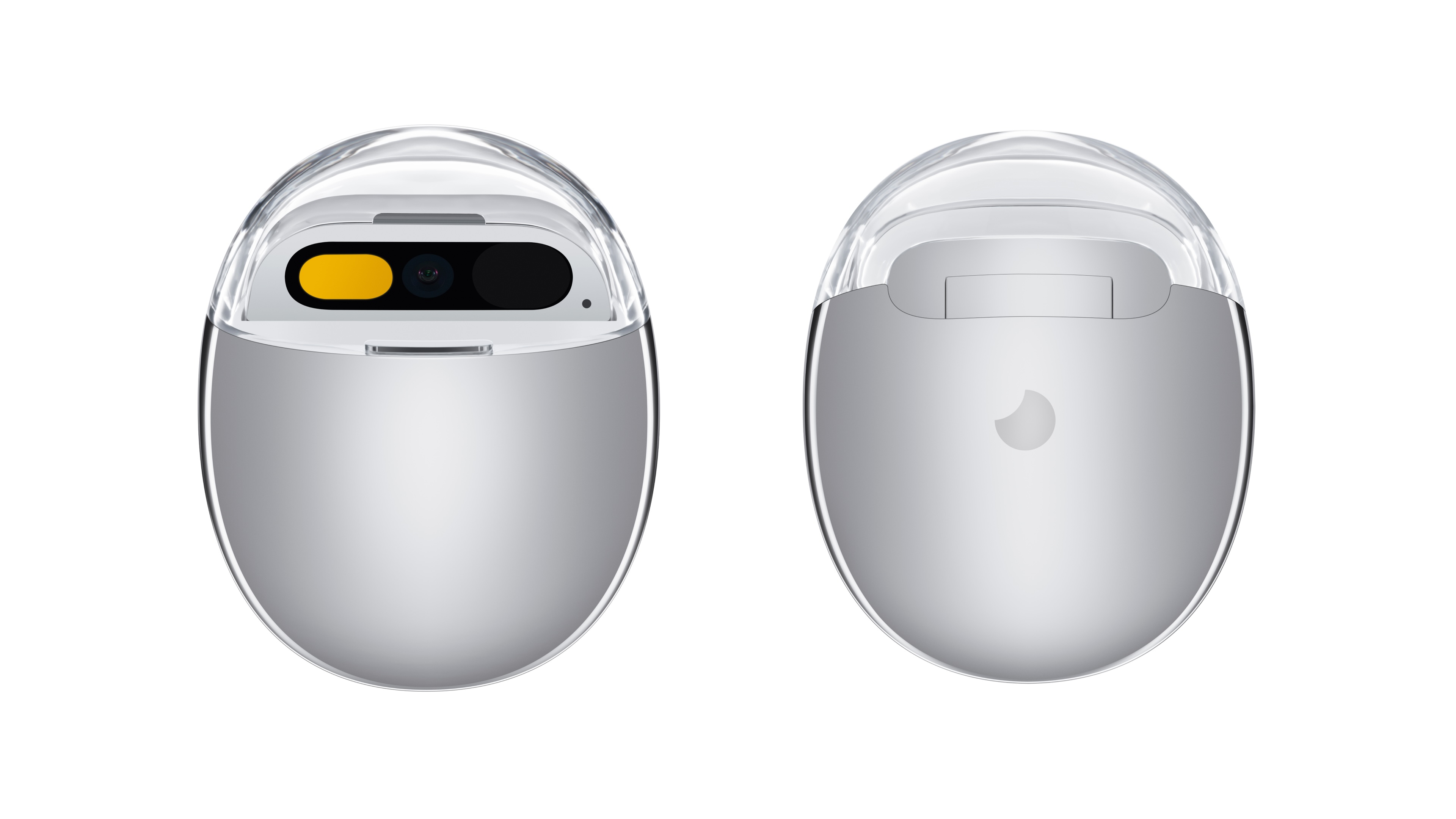
The language around the device and the accompanying press materials offer the manner of big, sweeping promises we’ve grown accustomed to around the Bay — world-changing technology that’s not much bigger than a matchbook. While the startup’s reported plan to launch during last month’s solar eclipse fell through (though the company’s X account is still loaded with mentions of the event), the company has presented the launch with a level of gravitas that is normally the domain of Apple events.
There are no coincidences in this small world, of course. Humane is deeply tied to Apple and trained in the ways of the so-called reality distortion field. Co-founders Bethany Bongiorno and Imran Chaudhri — who respectively serve as CEO and president — are former Apple employees. Their time at the world’s richest company was the foundation of the hype that’s been bubbling since last year.
Chaudhri spent 20 years as a designer at the company, before reportedly being fired in 2017, after sending an email quoting the 13th century poet, Rumi, “When you do things from your soul, you feel a river moving in you, a joy. Sadly, rivers dry out, and when they do, you look for a new one.” Bongiorno spent eight years at the company, serving as a director of software engineering for both iOS and macOS, before leaving in 2016. Both were most likely aware of the Vision Pro during its protracted development.

Then there’s the not-insignificant exodus of former Applers. Over the course of the startup’s half-decade existence, somewhere in the neighborhood of 90 ex-Apple employees reportedly work or worked for the 200-person team.
The announcement conveniently arrives during a fever pitch of excitement around generative AI, and the firm is pitching its first product as an early use case for the large language models that have captured the tech world’s imagination.
Every tech company, from the smallest startups to the Googles and Apples of the world, is scrambling to find effective ways to incorporate these technologies into real-world products. The Ai Pin is, perhaps, the first prominent device to capture that zeitgeist in a meaningful way, but it certainly won’t be the last.
Sam Altman serving as your largest shareholder (with around ~14% at last count) helps with the Silicon Valley bona fides, in spite of a recent report that the OpenAI CEO was quietly and independently working on what might have amounted to a direct competitor with Apple design guru and “aluminium” pronouncer, Jony Ive.
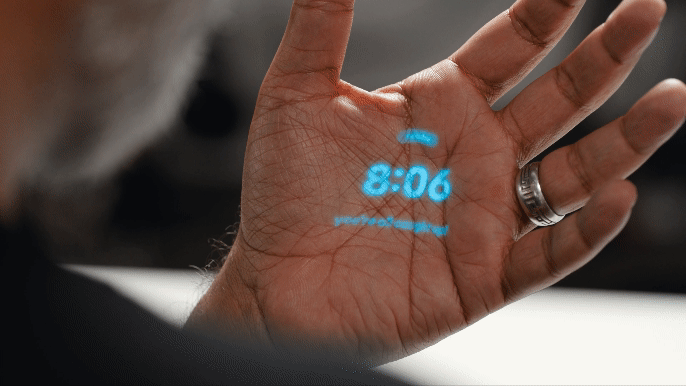
“We believe in a future where artificial intelligence amplifies human potential, and Humane shares this vision,” Altman says in today’s release. “We’re proud to be partnering with them to harness AI and redefine how we interact with technology — and the world.”
Including Altman’s backing, Humane has raised $230 million, including a $100 million Series C announced in March. Investors include Kindred Ventures, SK Networks, LG Technology Ventures, Microsoft, Volvo Cars Tech Fund, Tiger Global Qualcomm Ventures and Salesforce’s Marc Benioff.
Investors are certainly bullish, but is the world ready to look beyond the smartphone? Humane is far from the first company to ask the question. There’s been plenty of handwringing over the past decade about a world glued to the small screen, like scenes out of a John Carpenter film. This, after all, is the promise of the augmented reality headset. Google promised such freedoms with Glass a decade ago last February.
Humane is positioning its own future vision as the polar opposite of what Apple showed the world with the Vision Pro back in June — fully immersing oneself in the screen or being liberated from it. The narrative certainly hasn’t escaped Humane’s internal Slack channel. According to a former employee who spoke with The Information, “bashing” the headset was de rigueur among the staff, ex-Apple or no.
It’s “spatial computing” versus “ambient computing.” Both terms have been floating around for some time. Ambient computing, in particular, is an abstract enough a concept that people often disagree on the details. This is due, in part, to the fact that it was coined prior to the creation of the devices that will ultimately define it. Put simply, it’s technology that is out of the way by design. It’s a network of devices that work hard to make you forget they exist.
Over the past several months, Humane has attempted to retain its role as a secretive startup, while rationing out a good deal of information around the device. In May, Chaudhri gave a TED talk titled, “The Disappearing Computer: An Exclusive Preview of Humane’s Screenless Tech.” He wore a black Ai Pin set against a black jacket, staging a call from Bongiorno (the two are also married) to preview the device’s on-palm projection capabilities.
“In the future, technology will be both ambient and contextual,” he noted from the stage, “and this means harnessing AI to really understand you and your surroundings, in order to achieve the best results.”
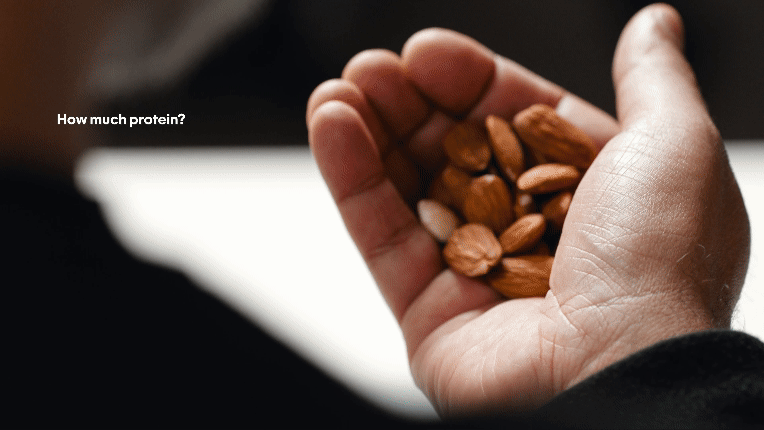
In September, the Ai Pin made a cameo on the lapels of models walking the Paris runway. Humane also gave Time Magazine a preview of the technology for inclusion in its 200 Best Inventions of 2023.
The company is currently offering a waitlist for those interested in the device. It comes in three colors: Eclipse, Equinox and Lunar. In the meantime, enjoy the almonds.
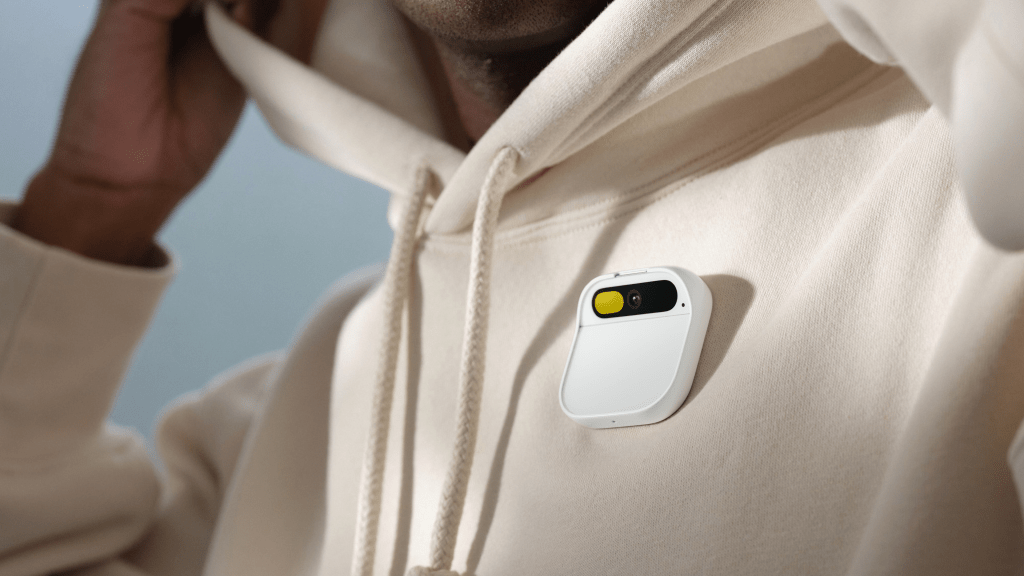






























Comment